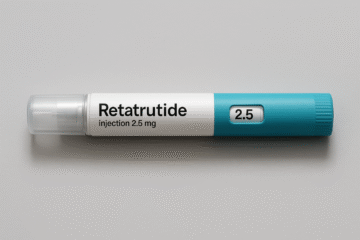How to lower your blood pressure: 10 top tips

High blood pressure (hypertension) is a significant risk factor for heart disease, stroke, and kidney problems. While medication can help, lifestyle changes can naturally reduce blood pressure and improve overall health.
At Puri Pharmacy in Southall and Hillingdon, we believe in empowering our community with knowledge and accessible health services. Below are 10 proven ways to lower your blood pressure naturally. Don’t forget to visit us for a quick and convenient blood pressure check.
1. Lose Extra Weight and Watch Your Waistline
Carrying excess weight, particularly around the waist, increases the risk of high blood pressure. Losing just 5–10% of your body weight can make a significant difference in lowering blood pressure and improving heart health.
Puri Pharmacy offers a private clinic where we prescribe Mounjaro (Tirzepatide), a revolutionary injectable weight loss treatment if you’re struggling with weight loss. Mounjaro can help regulate blood sugar, curb appetite, and support effective weight management, which in turn helps lower blood pressure.
Looking for safe and effective weight loss support? Visit our Private Weight Loss Clinic to learn more about Mounjaro injections, and book a consultation today!
2. Exercise Regularly
Regular physical activity helps keep blood pressure in check. Aim for at least 150 minutes of moderate-intensity weekly exercise, such as brisk walking, swimming, or cycling. Even minor lifestyle adjustments like taking the stairs instead of the elevator can improve cardiovascular health.
3. Eat a Healthy Diet
A well-balanced diet is one of the most effective ways to reduce blood pressure naturally. The DASH (Dietary Approach to Stop Hypertension) diet is scientifically proven to help. Focus on:
- A variety of vegetables
- Fresh fruits
- Whole grains like brown rice, oats, and whole-grain pasta
- Lean proteins such as fish, poultry, beans, and nuts
Studies show that the DASH diet can lower “bad” cholesterol levels and reduce heart disease risk by up to 13%.
4. Reduce Salt and Sodium in Your Diet
High sodium intake raises blood pressure by retaining excess fluid in the body. Limit processed foods and avoid salty snacks, ham, bacon, olives, pickles, and stock cubes. Instead, season meals with herbs and spices rather than salt.
5. Limit Alcohol
Excessive alcohol consumption can spike blood pressure. Men should limit alcohol to two drinks per day, while women should stick to one. Moderation is key to maintaining cardiovascular health.
6. Quit Smoking
Smoking damages blood vessels and increases blood pressure immediately after each cigarette. Quitting smoking has immediate and long-term benefits for heart health. Need support? Visit Puri Pharmacy in Southall or Hillingdon for expert guidance on smoking cessation.
7. Get a Good Night’s Sleep
Poor sleep is linked to higher blood pressure. Aim for 7–9 hours of quality sleep per night. Establish a bedtime routine, reduce screen time before bed, and manage stress to improve sleep quality.
8. Ease Stress
Chronic stress contributes to high blood pressure. Relaxation techniques such as meditation, deep breathing, and yoga can help lower stress levels and support heart health.
9. Track Your Blood Pressure at Home and Get Regular Checkups
Regular blood pressure monitoring helps detect early signs of hypertension. Home monitors are available, or you can visit Puri Pharmacy for a professional blood pressure check. Early detection and management prevent long-term complications.
10. Control Your Cholesterol and Blood Sugar
High cholesterol and blood sugar levels increase the risk of hypertension and heart disease. Maintain a balanced diet, stay active, and monitor your health regularly to keep these levels in check.




